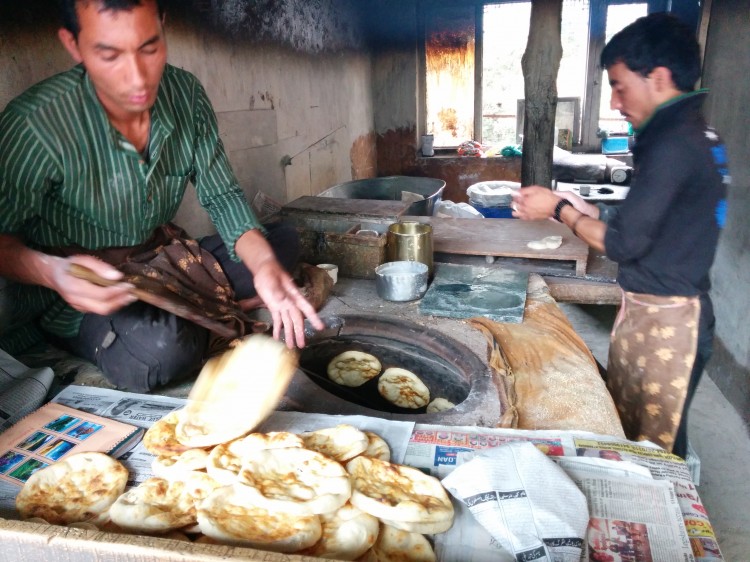By Harsh Mehta
There is some serenity about a morning in the Himalayas. The might of the massifs seems humbled by a morning Sun, the cold a little less biting, more like an embrace to a new day and the freshness of the dew under one’s feet, a subtle reminder of age-old childhood memories. If the stay is longer, mornings in the mountains become a ritual. One grows to like the freshness of the air, the calm walks around and the breakfasts to soothe the pangs of hunger that beckon with the cold. I remember starting my volunteering stint in Ladakh with an utter dislike for the apricot jam & the local ‘khambir’ bread and ending it with an insatiable longing for both of them every morning.
And so, during a recent visit to Kargil, in spite of staying in a hotel, I couldn’t get myself to have the ‘English’ bread-butter-coffee breakfast that it so generously offered. A morning walk around the town was in order and off we headed, over the roads that surrounded a gurgling Suru river. Few shops seemed open at this early hour in the morning. Carcasses of lambs hung down from meat shops in the goriest of their forms. Not the best of sights to begin one’s day with. So I turned away, looking for a less overwhelming experience. A little girl waited in front of the window of a shop, her gaze fixed upon the simmering ‘tandoor’ on the other side of the window. The owner then took three breads from the tandoor, wrapped them in a newspaper, and handed over to the girl who scurried away in the same direction as us. As we walked further in the market, more and more such bakeries became visible. Full-fledged baking stores, smaller shops, sometimes merely an ignored corner between two adjacent stores, just wide enough to accommodate a round tandoor and the equally round belly of the man behind it, these bakeries rule the morning hours of Kargil. Men, women, kids, line outside these bakeries, grab a bread or two and head home, like any other morning chore. I was left wondering how different these were from the khambir I ate in Leh during my last stay.
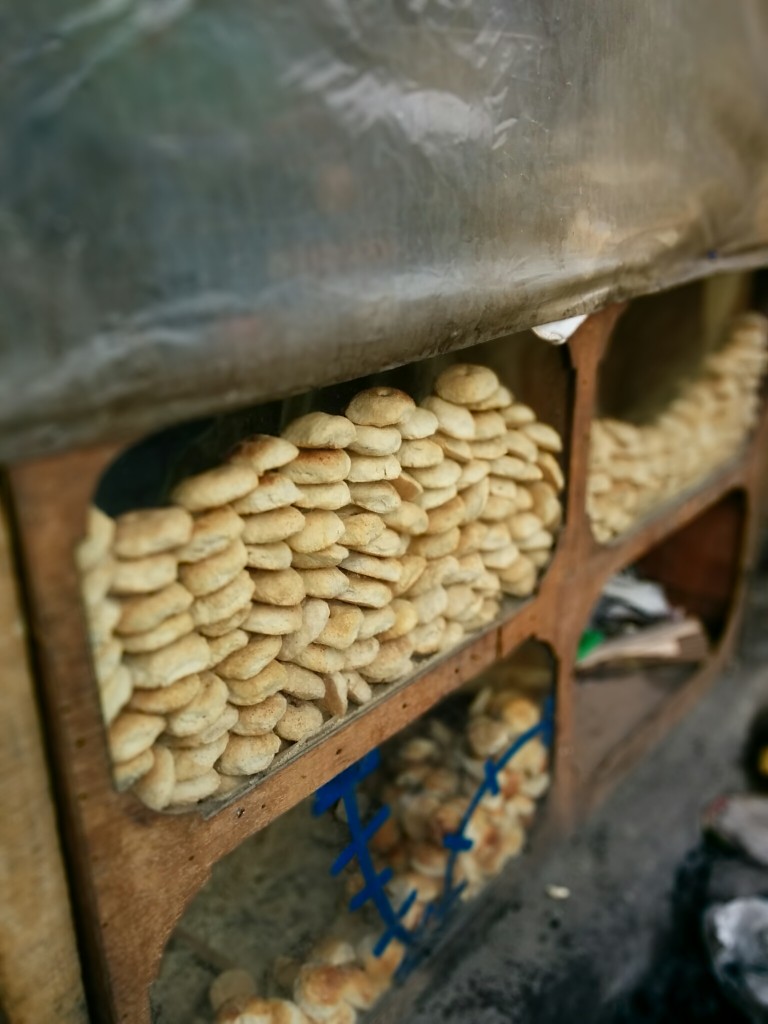
Nevertheless, in our hunt for a simple chai, we kept walking further, past more butcher shops and vegetable stores. The Suru was now way closer than earlier, its waters muddied by the rains, flowing ferociously beside the road. The market however, was far smaller than the expanse of the Suru. It ended earlier than anticipated. At the end, we noticed a ‘Darjeeling Hotel’ selling tea and a bakery right beside it. A desi’s delight would know no bounds at this sight. Chai and local bread. Just the way mornings in the mountains are supposed to be. While my friend occupied himself with the task of getting two cups of chai extra-sweetened, I cozied up to the bakery.
Two men worked in the bakery. One sat right behind the tandoor, his head constantly bowed in search of the latest bread to turn golden brown inside the oven. The other stood beside a table on the far side of the room, extracting the dough, leavening it, turning it into balls of even sizes and then pressing them into flat breads ready to be shoved and slapped inside the tandoor. The bakery was a version of the tandoor in itself, its walls blackened by the soot, its air warmed by the heat. One wall in particular sought attention. It was actually a notice on the wall which deserved a good read. As I went through the prices for the several items mentioned on the notice, I realised that it listed much more than a menu – it listed an entire tradition in baking in this part of the world. Girdeh, Lavasa, Chachura, Kulcha, most of these, names of breads I’d barely heard. When probed about them, our bakery men told that these were local breads and only girdeh and chachura were available in the morning and lavasa in the afternoon. We took our two pieces of girdeh and gulped them down with two cups of tea from ‘Darjeeling hotel’ (actually run by a Nepali). The men also pointed in another direction to the bakery on the other side of the road, which sold ‘chachura’, more importantly, this being one of the only two in Kargil that sold it. The chachura is a crisp, hard bread, actually more like a cross between a bread and a cookie. We took just two of these, they were bland, in desperate need of some accompaniment, and then watched a ministerial cavalcade pass by.
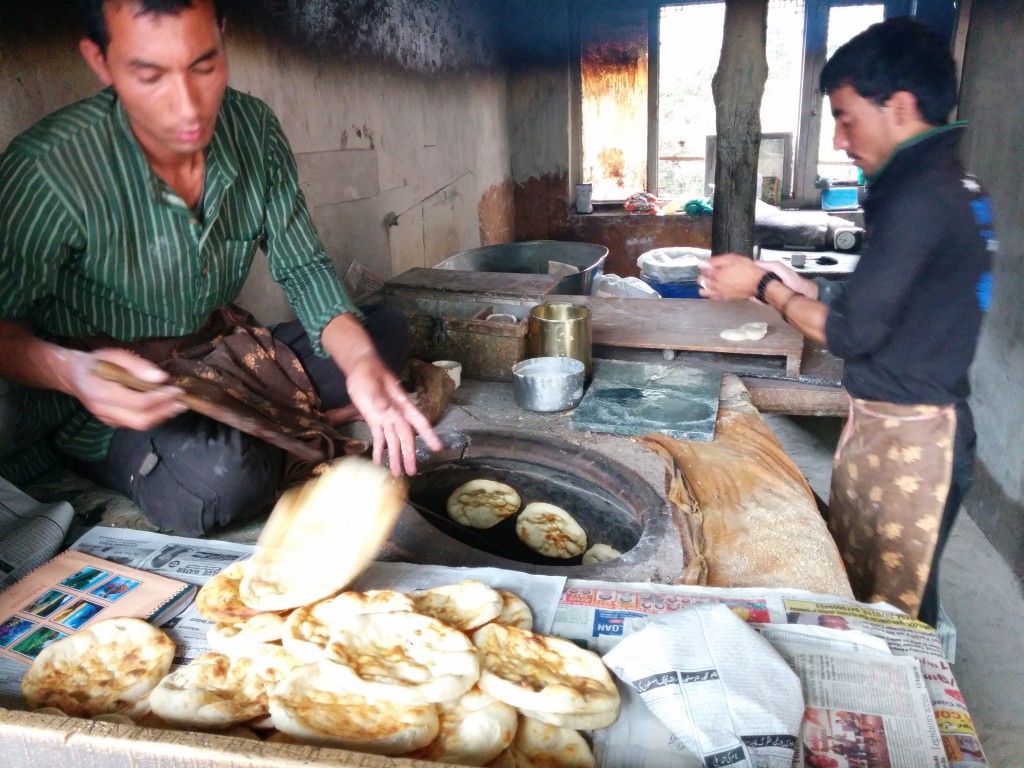
It was only after we began our journey back when we realised that the market had sort of changed from how we had left it. Several men and women now lined both sides of the road. Beautiful faces, accompanied by equally beautiful fruits, basketfuls of which they’d brought along to be sold here. Fresh apricots from farms and households,lay stored in aluminium and plastic containers to be evaluated by passers-by, held in their hands, smelled through their noses and the apricots’ reddish-orange velvety skin to be carefully inspected through their gaze. Nearby lay crates full of apples, but surprisingly smaller, the size of the apricots and green in colour, yet tasty enough to fill one’s morning with sweetness. On both the fruits, the sellers maintained that they were the best in India – those from Kashmir would fade in comparison to the ones in Kargil. Now that was a big claim to make but I could not agree more with the apricot seller. On apples, given that I have a soft corner for the Kashmiri ones somewhere in my mouth, I decided not to argue.
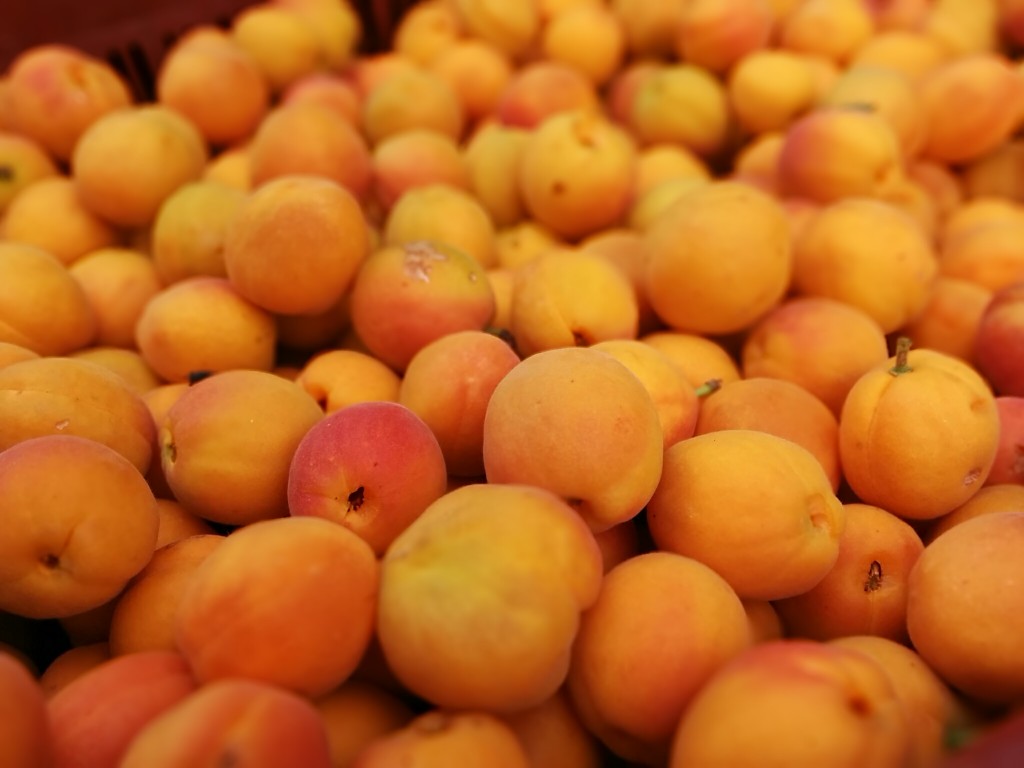
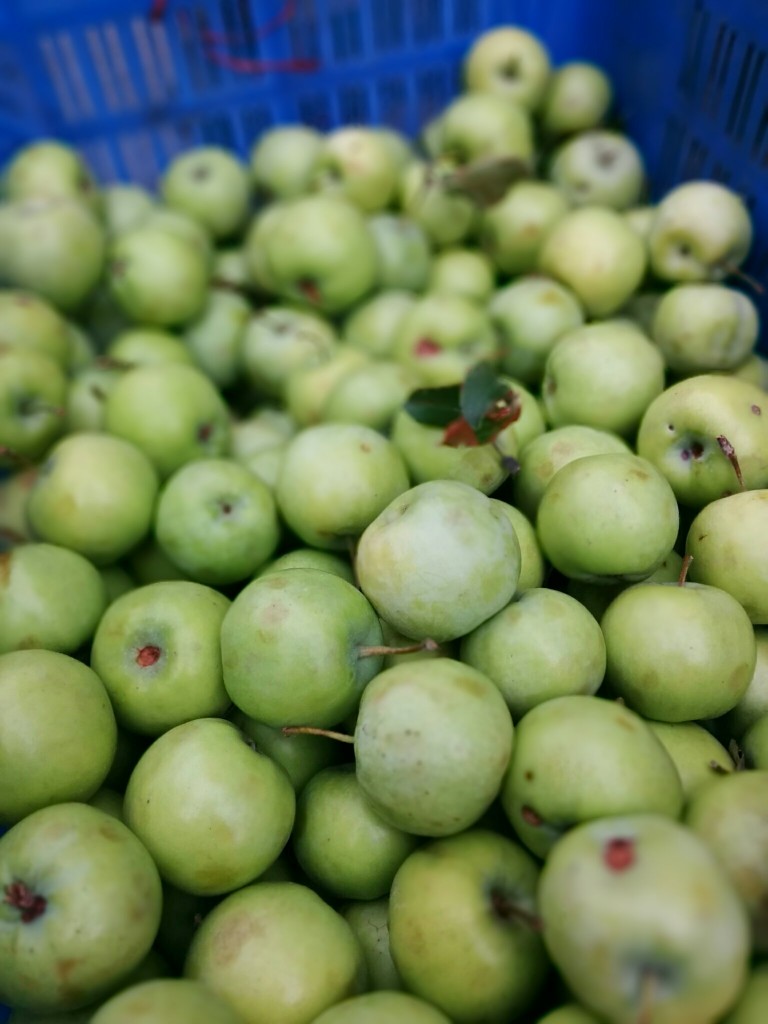
We turned back to the hotel as a life size poster of the Ayatollah watched upon us. The market was even livelier now, this being a Sunday. Several carts with vegetables, fruits and even clothes dotted the street now. Reaching the hotel, I glanced at its restaurant. Portions of generous butter cubes and jam extracts peeped at me through its windows. I smiled and headed back to the room. Had I stayed back for these, I’d never have known what a Chachura or a Girdeh was!
Visit our website to book from 21 homestays in Srinagar & 141 homestays in Ladakh
About the author: Harsh Mehta is your typical 20-something traveller who roams around from Krakow to Kerala and Hungary to the Himalayas in his quest to unravel the gems of the world. Having successively lost his heart to the mountains of Kashmir, the sweet traditions of the Ottoman cuisine and the old town squares of Europe, he now fancies anything that travels, from food and culture to music & languages and their linkages across the world. And so, even as he spends dreamy days at his 9-5 job, he derives inspiration from the messy streets of Mumbai to pen down the best of his travels and believes that the best destinations are not the ones that you go to with a wishlist but those that you return from with one. He shares his experiences on his personal blog – Travelbyts, tweets at @harshm09 and can be shown some love at Facebook- TravelByts. He’s also reachable at travelbyts@gmail.com.
